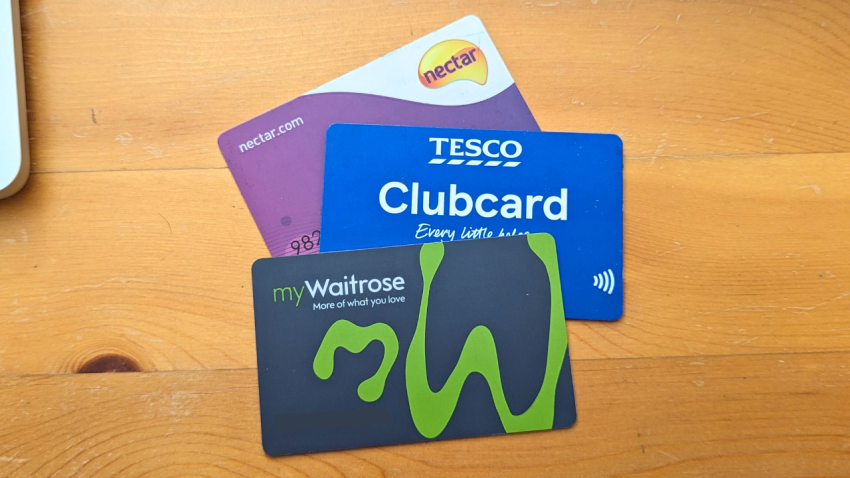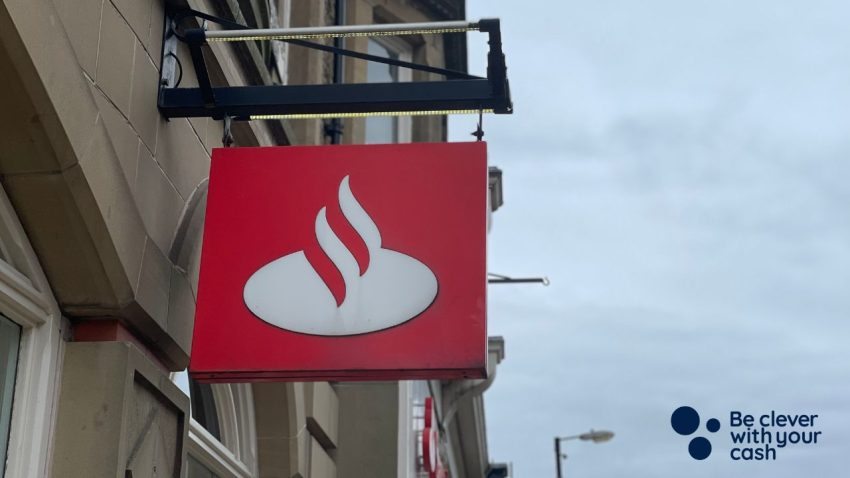Who you use to fundraise and donate money with can affect how much money the charity gets – so it pays to use Just Giving alternatives.
When you donate on one of the big fundraising websites, you’d think all your money is going to the cause you’re supporting. Well, it doesn’t. I was pretty shocked when I discovered this a few years ago.
There can be fees added to or taken from the money you give, and the charities themselves could be faced with charges just for being listed on the platform.
Among the worst is the most popular – Just Giving. This is the only one of the major platforms that isn’t non-profit. Alongside these costs to the charities, it until recently also added a compulsory transaction fee for customers too. It’s now made that an optional charge, but paying it still means less of your money goes to the charity.
But some are much more affordable platforms that are Just Giving alternatives. And as with most things, a little shopping around can maximise how much of your cash actually goes to the good cause.
As you’ll see further down the article I’ve broken down how much money gets taken by the platforms. The cheapest gives 44p more to causes than Just Giving per £20 donated.
Though it might not seem a huge amount based on a £20 donation, it scales up massively over all the money that is raised.
For example, Captain Tom Moore had raised an unbelievable £32.8 million for NHS causes before it was closed on the 30th April. This was via Just Giving, and the fees and voluntary “tips” could easily be over £2 million.
If he’d chosen Virgin Money Giving then the total would have been half that (figures calculated via Virgin Money Giving’s calculator). And potentially even less with a different platform.
It just shows that the platform you choose for fundraising or donating can make a huge difference.
(FYI Just Giving has said 97% of the money raised by Captain Tom will go to the NHS after processing fees, though I assume that doesn’t include any extras people volunteer to pay to cover the fees. Plus it’s made its own £100,000 donation on top)

Where your money goes when you donate
You’ll be relieved that most of your donation does go to the charity – but not all.
Payment fees
For a start, there are card transaction fees that all the charities have to pay. They don’t have a choice about this as it’s a cost levied by the card processing companies. In fact, any time we use our debit or credit cards these are part of what we pay, whether charity or not.
Just Giving will also take a cut of any Gift Aid added to your donation too, as part of the processing fee.
However, Just Giving alternatives all charge different fees, which can make a difference.
Wonderful, one of the best free platforms, has had to close (hopefully temporarily) but shared that it paid just 0.8% plus 18p for each transaction. So anything higher than this is possibly hiding additional charges.
Tip jar warning: The cost we had to meet for payment processing was 0.8% and 18p per transaction. We handled £5m in donations. If your platform processes more than £5m and you’re being asked to contribute more than 0.8% and 18p, do ask what they class as card-processing fees.
— wonderful.org (@wonderful_org) March 20, 2020 via X
Platform fees
Of course, these donation websites have all got to cover the costs of staff and operations. And, yes, this money does have to come from somewhere.
And it’s not cheap to do this. BT used to offer My Donate, a free service to charities, and fund it from its profits. But this project was closed down in 2019.
So some of the websites will add this as an extra charge on your donation, possibly voluntary, or just take it from the money you give.
Charity listing fees
And that’s not the only way these companies take cash away from charities – the biggest platforms Just Giving and Virgin Money Giving both charge charities to use their platforms.
Just Giving charges a monthly fee of £39 + VAT for any charity that raises £15,000 or more in a year. For those which raise less the fee drops to £15 + VAT a month.
Virgin Money Giving meanwhile has a flat, one-off fee of £150 + VAT.
Our podcast
Listen to Cash Chats, our award-winning podcast, presented by Editor-at-Large Andy Webb and Deputy Editor Amelia Murray.
Episodes every Thursday.

The alternatives to Just Giving and Virgin Money Giving
If like me, you want as much of your money to go to charity as possible, and for the charity to be able to use the platform without a charge, it makes sense to avoid the profit-making Just Giving.
It’s less clear-cut with Virgin Money Giving as though it is non-profit, the fees still make it quite expensive for smaller charities.
Fortunately, there are alternatives. Some don’t charge for anything, while a few others might have a transaction fee, but are free for the charity.
The major downside with most of these smaller platforms is just that – they are smaller. They won’t necessarily have your charity of choice on board, though it’s worth looking to see what your options are. Often it’s the smaller and local charities which need our support more than some of the giants – and they might be on the smaller platform.
If you’re fundraising, then talk to the charity, or check out its website at least, to see if they have a preferred platform.
Get the best of our money saving content every week, straight to your inbox
Plus, new Quidco customers get a high paying £18 welcome offer

Ways to maximise your donation
As well as choosing the cheapest platform for charities, you can boost the amount they get from your donation by making sure they can claim the tax back from the government.
If you donate via your paycheck – often called Payroll Giving – the taxman actually contributes some of the money. So a Basic rate taxpayer would only contribute 80p for the charity to get £1.
This is automatic and in theory an easy way for the charity to get the extra tax cash on top of your donation. Ask your HR team if they run a scheme. If they don’t seem if they will set one up.
So Payroll Giving works great for regular donations, but it won’t work for a one-off contribution. In that case, and if you are a tax-payer, you can choose to add Gift Aid to your donations, adding 25%.
You’ll see this option when you donate online. However with Gift Aid the charity has to claim this tax back. This can come with administration costs to the charity.
Both methods will mean the same amount of money goes to the charity.
 Featured switching deal
Featured switching deal
 Customer rating
3.8/5
Customer rating
3.8/5
- Switch bonus£200
- Offer endsFree gift card ends 27 February
- Extra bonus£25 Amazon Gift Card
- FSCS Protected? Yes
- Switch bonus requirements Switch using the Current Account Switch Service and close your old account within 60 days of starting the switch
- Deposit requirements Deposit £1,500 in the first 60 days from opening the account
- Direct debits transferred over Set up two Direct Debits before or after the switch from a selected list of household bills
- Existing customers? Can't have held any Santander current account on 1 January 2025
- Restrictions Can't have received a switching bonus from Santander already, offer limited to once per person
- Eligible accounts Open a new or hold an existing Everyday, Edge, Edge Up or Edge Explorer current account
- £25 Amazon Gift Card requirements To qualify for the gift card, you need to complete a full switch using CASS, and make five debit card transactions within 30 days of opening the account. Offer ends 3pm 27 February 2026
How much does it cost to donate £20?
Here’s the real cost of a £20 donation to Just Giving, Virgin Money Giving and some of the other donation platforms. Some of the platforms will give you the choice to pay this. I’ve included the extra value of Gift Aid on top too.
These figures assume you aren’t choosing to add the fees to your initial donation. They also don’t reflect Just Giving’s monthly fee or Virgin’s set-up fee which are worth bearing in mind.
Kindlink
Kindlink has no charges for the charities to use the platform or be listed, making it one of the cheaper options.
- Payment processing fee of 1.45% + 10p = 39p
- Platform fee of 0% = 0p
- Gift Aid fee of 0%= 0p
Total cost per £20 = 39p
Total to charity after Gift Aid = £24.61
GoFundMe
With GoFundMe you’ll be charged a similar amount to Virgin Money Giving but there’s no charge for charities to be listed.
- Payment processing fee of 2.9% + 0.25p = 39p
- Platform fee of 0% = 0p
- Gift Aid fee of 0%= 0p
Total cost per £20 = 83p
Total to charity after Gift Aid = £24.17
Just Giving
The monthly fee that charities are charged won’t make much difference to this figure if they’re taking a lot of donations. However medium-sized charities could fee the impact more.
- Payment processing fee of 1.9% + 20p = 58p
- Platform fee of 0% = 0p
- Gift Aid fee of 5% = 25p
Total cost per £20 = 83p
Total to charity after Gift Aid = £24.17
Virgin Money Giving
Since Virgin Money Giving has a sign-up fee the actual amount will be a little less. Though for large charities the £150 one-off fee will be negligible.
- Payment processing fee of 2.5% = 50p
- Platform fee of 2% = 40p
- Gift Aid fee of 0% = 0p
Total cost per £20 = 90p
Total to charity after Gift Aid = £24.10
During the lockdown the platform fee will be covered by Virgin Money but it’ll return afterwards. The figures above include the platform fee.
Every Click
Another free site for charities to join, Every Click is funded from the commission paid by retailers if shoppers use the portal before making online purchases (in the same way cashback and voucher code sites work).
- Payment processing fee of 4.8% = 96p
- Platform fee of 0% = 0p
- Gift Aid fee of 0%= 0p
Total cost per £20 = 83p
Total to charity after Gift Aid = £24.04
Givey
Givey is targeted at small and medium charities. It charges the donor 5%, so £1 for a £20 donation. But again the platform is free for charities to use. Further funding comes from businesses who can choose to match donations.
- Combined payment processing fee & platform fee of 5% = £1
- Gift Aid fee of 0%= 0p
Total cost per £20 = £1
Total to charity after Gift Aid = £24






I’m Treasurer of a small charity. We has a QR code set up for us by Just Giving for a charity event. Just Giving charge no fees, we get 100% of the donation plus the Gift Aid less 5%. However JG suggest a 17% ‘tip’ to donors which horrified many of out donors and put them off donating.
The trouble is that if one dies not want the voluntary contribution , and keys in a chosen amount, before one clicks confirm ( confirming all details etc ) then just giving speedily reverts to their voluntary contribution eg on a £150 contribution, it is £22.90 (this is more than they charge for processing) and it takes a few fails to do this. Sometimes, one is so keen , and rushed… and they take it as the choice not to pay us made so hard
You can also raise on easyfundraising.org.uk – it is free to use as it works by donating cashback when you shop online.
My son needs to raise money (£3800) to go on a World Scout Jamboree in 2023. We are fundraising by doing sponsored events etc. What’s the best site to use for this purpose?
Why does any donation have to go through any of these fund raising companies? Surely it is better to send the donation directly to the charity.
Because gift aid require charities to designate resources to claim it. Donation platforms do the hard work for you.
Yes, if you are sending a cheque, or donating directly to the charity’s bank account (ie via a standing order), then the charity will receive all of the money. However, most charities are not able to directly accept donations by credit or debit card, as that needs a very secure online payment system, to be able to accept card details. So, most charities have to use a donation platform for that reason.
I want to start a fund raising campaign for Oxfam (I am not an employee of Oxfam, just a member of the public). What is the best platform to use, to maximise the amount Oxfam will receive, but in a way which will make it easy for friends and family to give?
many thanks
Oxfam has a page devoted to fundraising for them, so that’s a good place to start https://www.oxfam.org.uk/get-involved/fundraise-with-oxfam.
Has Virgin now reverted back to charging their platform fee? I am trying to make a donation on 20 July 2020 and it’s asking if I want to add an extra £1.80 to a £40 donation (which seems to be a 2.5% processing plus 2.0% platform fee = 4.5%). We’re not fully out of lockdown yet? Thanks
Hi Flick, Yes it looks like it is back! Thanks for flagging
I use Charities Aid Foundation, and everything is Gift-Aided. They have some fees which amount to 4% of the gross donation, i.e. 80p on £20, but I have no problem with that amount, as CAF is itself a Charity, so the fee also goes to a good place.
Have you read the comments from the Institute of Fundraising in support of JustGiving? I realise the UK prefers to make up its own narrative on subjects in which it knows nothing about rather than listen to experts, but you should think about researching from sources that trade in facts.
Without online sites like Virgin and JustGiving, pages like Captain Toms wouldn’t make a fraction of what they do. These sites provide a secure, easy and fast way to give money. And the charities get their hands on the money much more quickly. Payroll giving and direct giving cause significant administrative overhead and slow the process of getting the money where it needs to go.
You know why these pages raise so much money? Because it takes 1 minute to go online on your phone, or tablet or computer at the exact moment you hear about a good cause, recognise a secure and well known site and then make your donation.
Now, think about your alternative suggestions. How many people are going to have the thought to donate and then abandon it because they haven’t heard of these small sites and don’t have the trust factor? setting up payroll giving, or writing cheques or dropping off money to a charity TAKES TOO LONG and the moment has passed.
Using online giving effectively makes MORE money for the charity in the long term.
This is sensationalist rubbish, and stirring up bad will only ensures that people DON’T donate rather than look for alternative ways to give – because it takes longer, and more effort on their part.
Be responsible. Direct people to factual and expert sources and let them make up their own minds.
Thanks Amanda. I’m not sure you’ve fully read the article.
Payroll giving is a different type of donation as I’m sure you realise. That’s for regular contributions rather than supporting a particular fundraising activity, so it’s as well, not instead of online platforms.
I think it’s also clear in the article that online platforms are good options but this shares the different fundraising platforms people can consider if they want to do something.
Quite shocking. Never realised that Just Giving charges these fees. Shows what a world we live in.
Thanks Andy, helpful article. What about PayPal Giving Fund? Might be newer than this article, but looks like a great option with no apparent charges for either the donor or charity?
Totally agree that the big sites take a cut of the donation.
But for a charity dealing with multiple online giving platforms is an admin nightmare. The more online platforms they are dealing with the more staff time has to be donated to donation administration. This is a cost the donating public don’t see. It can outweigh the “free at point of donation ” attraction.
I always give directly to the charity or person themselves.